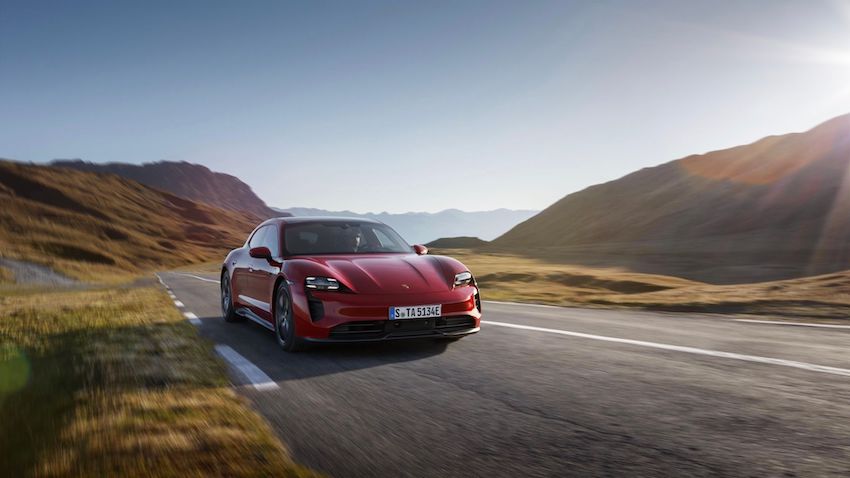Porsche outlines EV plans with electric Boxter and Cayman on the way
Porsche has confirmed that 80% of new vehicles produced will be electric by 2030, with battery-electric versions of the Boxter and Cayman planned.
Speaking at Porsche’s annual financial meeting last week, CEO Oliver Blume outlined the manufacturer’s plans to ramp up its electrification strategy, following an impressive year for electric vehicle sales.
Porsche sold more cars last year than in any year in its history, breaching the 300,000 mark for the very first time, with 301,915 delivered to customers worldwide. In Europe, almost 40% of cars sold were either plug-in hybrid or electric, with the Taycan outselling models such as the 911.
The manufacturer is now accelerating its electrification plans, with Oliver Blume confirming Porsche’s intention to be carbon-neutral on the balance sheet in 2030.
“In 2025, half of all new Porsche sales are expected to come from the sale of electric vehicles – i.e. all-electric or plug-in hybrid,” Blume said. “In 2030, the share of all new vehicles with an all-electric drive should be more than 80 percent.”
To achieve these goals, Porsche is investing in premium charging stations together with partners – and additionally in its own charging infrastructure. Further extensive investments are flowing into core technologies such as battery systems and module production. In the newly founded Cellforce Group, high-performance battery cells are being developed and produced that are expected to be ready for series production by 2024.
Blume also confirmed that Porsche will soon be offering electric variants of its Boxter and Cayman models – otherwise known as the 718 series.
Blume said: “The Taycan is 100 percent a Porsche and inspires all kinds of people – existing and new customers, experts and the trade media. We are stepping up our electric offensive with another model: By the middle of the decade, we want to offer our mid-engine 718 sports car exclusively in an all-electric form.”
In 2021, Porsche increased its deliveries in all global sales regions. Once again, the highest-volume individual market was China. With almost 96,000 deliveries, an increase of eight percent was recorded here compared to 2020. Porsche grew rapidly in North America: In the United States, the number of deliveries rose by an impressive 22 percent to more than 70,000 units. A very positive development was also observed in Europe: In Germany alone, Porsche increased its new vehicle deliveries by nine percent to almost 29,000 units.






